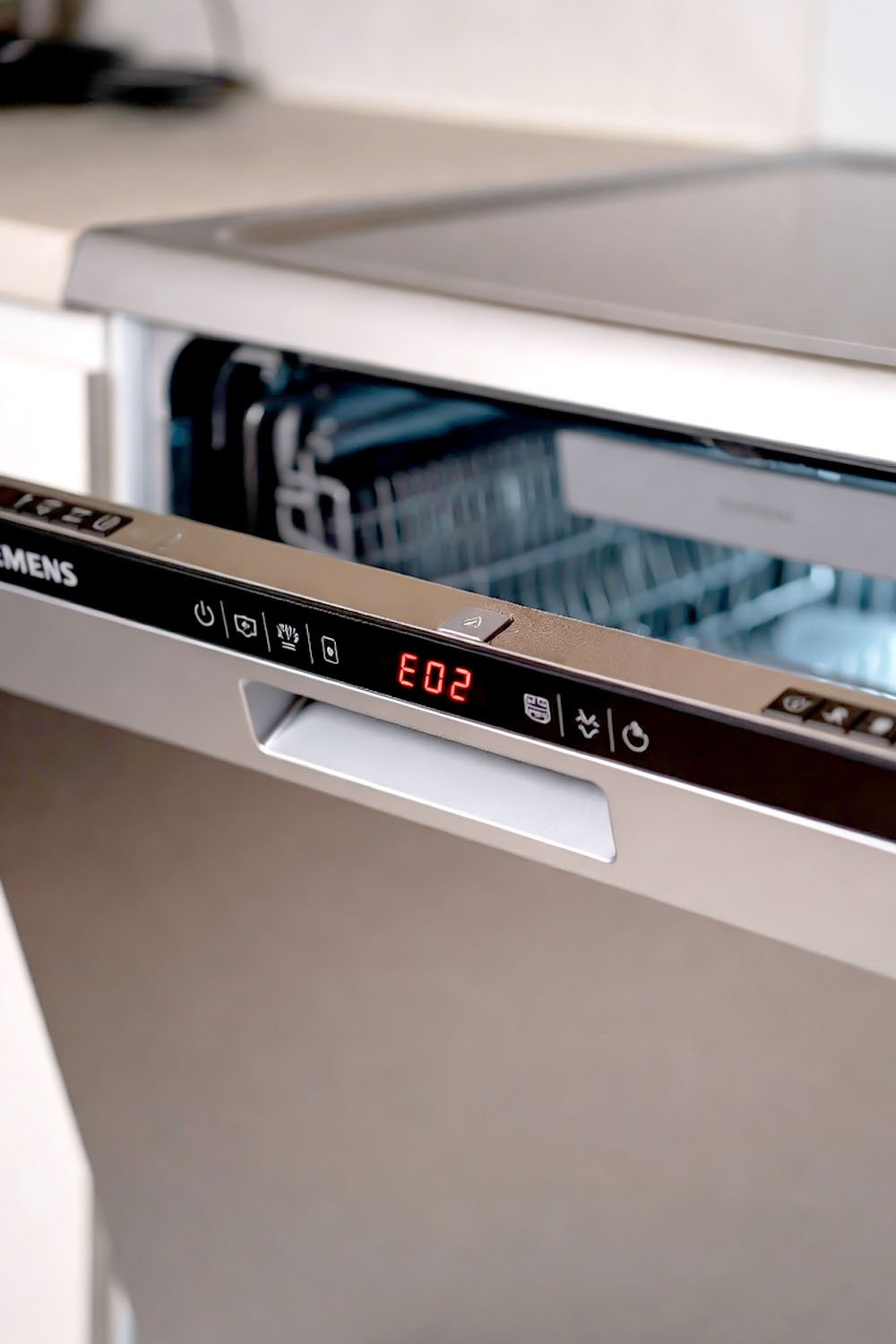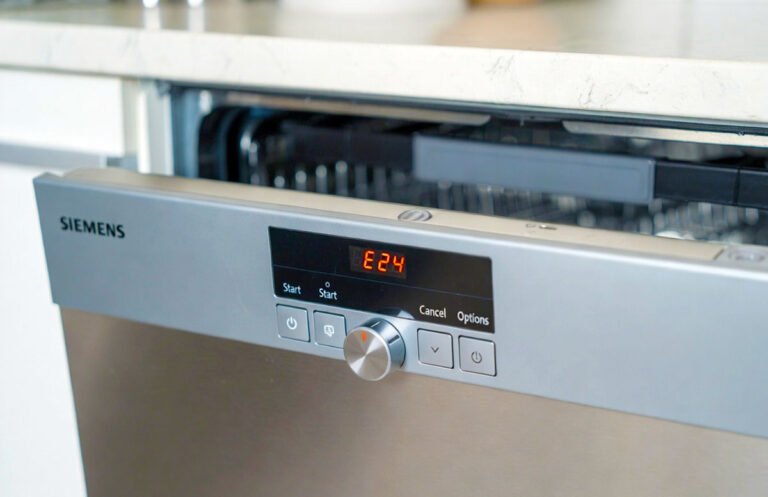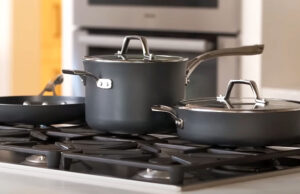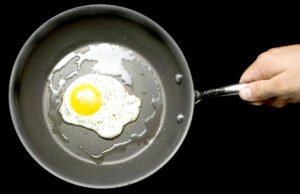As an Amazon Associate, I earn from qualifying purchases at no extra cost to you.
Why Does My Dishwasher Take So Long? Real Reasons!
You’ve probably stood in front of your dishwasher, tapping your foot, wondering, “Why is this thing still running?” You want clean dishes fast, but the dishwasher seems to take forever. You’re not alone. Many people feel the same frustration, especially when you have busy days and want to get on with your life. In this post, we will dig deep into why your dishwasher might take so long and what you can do about it. Let’s get to the bottom of this!
Why Do Dishwashers Take So Long to Finish?
Dishwashers can seem like they take forever sometimes. But there are good reasons behind it. Many dishwashers today use longer cycles because they are designed to clean better and save water and energy. Let’s break down why it feels like a slow process.
Energy and Water Saving Cycles
Modern dishwashers are made to use less water and electricity. To do this, they run at lower temperatures and for longer times. Using less hot water means the dishwasher has to run more cycles to clean well. These longer cycles help save money on your bills and help the environment, but they do slow things down.
Sensor Technology for Better Cleaning
Many dishwashers now have sensors that check how dirty your dishes are. These sensors decide how long to run the cycle. If your dishes are very dirty, the dishwasher will run longer to get them clean. This smart technology helps prevent wasting water but means the dishwasher might run for 2 hours or more.
The Different Wash Cycle Types
Dishwashers have different cycle options: quick wash, normal, heavy-duty, eco, and more. Each cycle has a set time. Quick wash runs fast but might not clean very dirty dishes. Heavy-duty or pots and pans cycles are much longer. Sometimes people pick the wrong cycle, causing a longer wait than expected.
Heating Up Water Takes Time
Dishwashers heat water inside the machine. Heating water to the right temperature takes time. The hotter the water, the better it cleans, but it takes longer to heat. If your dishwasher uses cold water from the pipes, it takes even longer to warm it up inside.
Drying Cycle Adds Extra Time
Drying dishes is an extra step that can add a lot of time. Many dishwashers use heat drying or air drying. Heat drying uses a heating element that takes extra minutes or even half an hour. Air drying uses less energy but can take longer and depends on room temperature.
Dishwasher Size and Load
If your dishwasher is full or overloaded, it might take longer to clean properly. Dishes blocking spray arms or blocking water flow can cause the dishwasher to work harder and run longer. Also, small dishwashers may take less time, but bigger ones with more dishes could need longer cycles.
Older Dishwashers vs New Models
Older dishwashers often run faster but use more water and energy. New models prioritize saving resources, so they take longer. If you have an older dishwasher and it suddenly takes longer, it might be due to parts wearing out or needing maintenance.
Maintenance Issues That Slow Down Dishwashers
If your dishwasher isn’t cleaned regularly, food and grease can clog parts like filters and spray arms. This causes the dishwasher to work less efficiently and take longer. Checking and cleaning your dishwasher often can keep it running faster.

How to Speed Up Your Dishwasher Without Losing Cleanliness
You don’t always want to wait two hours for clean dishes. The good news is there are easy ways to make your dishwasher faster without losing cleaning power.
Use the Right Cycle for Your Dishes
Most dishwashers have a quick or express cycle. Use this when dishes aren’t very dirty. For lightly soiled dishes, this cycle cleans well and saves time. Save the longer cycles for pots, pans, or very dirty dishes.
Run Full Loads but Don’t Overload
Try to run the dishwasher only when it’s full to save water and energy. But don’t overload it. Overloading can block water flow and spray arms, making the machine work longer. Arrange dishes carefully for best cleaning.
Check and Clean Filters Regularly
Dirty filters slow down water flow and cleaning. Remove and rinse your dishwasher filter once a week if you use it often. This keeps water flowing and helps dishes get clean faster.
Use Hot Water Before Starting
Running your kitchen sink hot water for a few seconds before starting the dishwasher can help. This means the dishwasher gets hot water from the start, so it doesn’t waste time heating cold water.
Skip the Drying Cycle or Use Air Dry
If you want to save time, skip the drying cycle or choose air dry. You can dry dishes by hand after the cycle finishes. This cuts down on dishwasher run time.
Regular Maintenance and Inspection
Check spray arms, door seals, and filters for dirt or damage. If parts are broken or clogged, your dishwasher won’t clean well and will run longer. Fixing small problems can speed up cycles.
Consider Upgrading to a New Model
If your dishwasher is old, it might be time to upgrade. New dishwashers have smart technology and faster cycles but still clean well. Look for energy-efficient models with quick wash options.
Common Problems That Make Dishwashers Take Longer
Sometimes, a dishwasher that suddenly takes much longer than before has a problem. Here are some common issues that slow down dishwashers and how to spot them.
Faulty Heating Element
If the heating element isn’t working, the dishwasher can’t heat water properly. It will run longer to try to heat water. You might notice dishes are not drying well or there is cold water inside.
Blocked Spray Arms
Spray arms have holes that spray water on dishes. If these holes are blocked by food or hard water, the dishwasher cleans less well and runs longer. You can remove and clean spray arms to fix this.
Clogged Filters and Drainage Issues
Filters catch food bits. If clogged, water won’t flow freely. Drainage problems can cause water to stay dirty and dishwasher to run extra cycles trying to clean. Regular filter cleaning is important.
Faulty Door Seal
If the door seal is broken or dirty, water can leak or the dishwasher may not seal well. This causes longer cycles or the dishwasher might stop mid-cycle.
Problems with the Control Board
Sometimes, the dishwasher’s control board (the “brain”) malfunctions and causes cycles to take longer or run endlessly. This usually needs a professional repair.
Water Temperature Problems
If your home’s water heater is set too low or slow, your dishwasher might not get hot enough water quickly. This makes it take longer to heat water inside.
Using Detergent Not Made for Dishwashers
Some detergents create too many suds or don’t clean well. This can cause the dishwasher to run longer or repeat cycles. Use only dishwasher detergent.
Hard Water Buildup
Hard water leaves mineral deposits inside your dishwasher. This can clog parts and cause longer cycles. Using water softeners or special dishwasher cleaners helps prevent this.
Final Thoughts
Dishwashers taking a long time can be annoying, but usually, there are good reasons behind it. Most modern dishwashers take longer to clean better and save energy. By choosing the right cycle, keeping your dishwasher clean, and doing small fixes, you can speed up your dishwasher without losing cleanliness. If problems continue, check for parts that need repair or consider upgrading your machine. Remember, a little care goes a long way in making your dishwasher faster and more efficient!
Frequently Asked Questions (FAQs)
Is it normal for dishwashers to take over two hours?
Yes, it is quite normal for modern dishwashers to run for two hours or more. Many dishwashers use long cycles to save water and energy, heat water properly, and clean dishes deeply. While older models ran faster, new machines prioritize efficiency, so they take more time. You can check the cycle type you are using to see if a quicker option is available for lightly soiled dishes.
Can I run my dishwasher faster without damaging it?
Yes, you can run your dishwasher faster by using quick wash cycles or express settings. However, faster cycles usually use more water and energy and may not clean very dirty dishes well. Avoid overloading your dishwasher and clean the filters often to keep the machine running efficiently. Skipping the drying cycle also saves time but may require you to dry dishes by hand.
Do I need to clean my dishwasher regularly?
Yes, cleaning your dishwasher regularly is very important. Food particles, grease, and mineral buildup can clog filters and spray arms, making the dishwasher work harder and take longer. Cleaning filters weekly and running a cleaning cycle monthly with special dishwasher cleaner keeps your machine in good shape and speeds up cleaning times.
Is it okay to skip the drying cycle?
Yes, skipping the drying cycle is okay if you want to save time and energy. You can open the dishwasher door after the wash cycle and let dishes air dry or dry them by hand. Some dishwashers have an air dry option, which is slower but uses less power. Skipping drying can reduce dishwasher run time by 20 to 30 minutes.
Can hard water affect my dishwasher cycle time?
Yes, hard water can cause mineral buildup inside your dishwasher, clogging spray arms and filters. This buildup makes the dishwasher less efficient and can increase cycle times. Using a water softener or special dishwasher cleaning products designed for hard water can help prevent problems and keep your dishwasher running smoothly.
Do I need to pre-rinse dishes before putting them in the dishwasher?
You don’t always need to pre-rinse dishes. Most modern dishwashers and detergents are designed to handle food scraps. However, large food pieces or sticky messes can clog filters and slow down the dishwasher. Scraping off big bits before loading is enough. Avoid pre-rinsing with lots of water, as it wastes resources.
Is a faulty heating element causing my dishwasher to take longer?
It could be. The heating element warms the water and dries the dishes. If it’s broken, the dishwasher may run longer trying to heat water or not dry dishes well. You might notice cold water inside or wet dishes after the cycle. A professional can test and replace the heating element if needed.
Can the dishwasher sensor be wrong and make cycles longer?
Yes, dishwasher sensors detect how dirty dishes are and adjust cycle length. Sometimes, sensors can malfunction or be blocked by food or soap residue, causing longer cycles than needed. Cleaning the sensor area and running a maintenance cycle can help. If problems persist, a technician may need to check the sensor.








